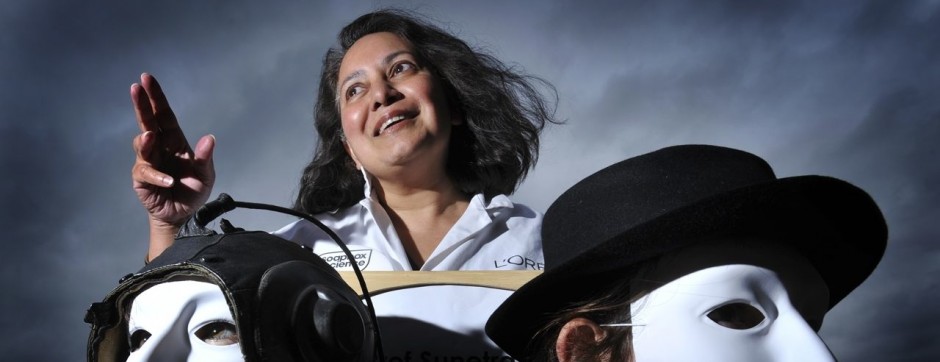 Emily Dowdeswell is a PhD student at Cranfield University, researching the effects of climate change on soil erosion. Her research investigates the impacts of predicted climate change regimes on soil microbiology and how vulnerable soil is to erosion. She will be talking about soil erosion and climate change at Milton Keynes Soapbox Science on 29 July 2017.
Emily Dowdeswell is a PhD student at Cranfield University, researching the effects of climate change on soil erosion. Her research investigates the impacts of predicted climate change regimes on soil microbiology and how vulnerable soil is to erosion. She will be talking about soil erosion and climate change at Milton Keynes Soapbox Science on 29 July 2017.
SS: Emily, how did you get to your current position?
ED: I first studied BSc Geography at the University of Leicester, after which I moved on to a Masters by Research at the University of Bedfordshire. My year completing a Research Masters degree introduced me to the ups and downs of research in science and was an excellent learning curve. After this, in October 2016, I began my current position as a PhD student at Cranfield University. To get this far I have had to work hard, but more importantly I have had to seize the opportunities that have come to me and persevere when times get frustrating.
SS: What, or who, inspired you to get a career in science?
ED: My family are keen gardeners and when I was younger we often went out on walks where they would point out the wildlife to me as we went. From this I think they taught me to be curious about the natural world around me. They encouraged me to ask questions and when they didn’t know the answers to then go and find out. They still inspire me today, when I’m struggling with an idea I always talk to them and they often help clear my thinking and send me to back to my research with more enthusiasm.
SS: What is the most fascinating aspect of your research/work?
ED: I am working on untangling the complex physical, chemical and biological mechanisms in soil using controlled laboratory experiments. I find it fascinating that neatly designed experiments can reveal so much about our environment and help us move a step in the right direction to solving challenging questions.
SS: What attracted you to Soapbox Science in the first place?
ED: In Soapbox Science, it is great to see the breadth of science out there and the cutting-edge questions people are working to answer. I am also proud that the event champions women and highlights different careers.
SS: Sum up in one word your expectations for the day
ED: Fun!
SS: If you could change one thing about the scientific culture right now, what would it be?
ED: Sometimes there is the idea that you should be constantly working on your research and that if you don’t you will fall behind and not be good enough. This idea is extremely damaging for scientists, as it feels like your research is all-consuming and if you’re not working then you should feel guilty. This idea might also put others off a career in science where they think that a good balance between your personal and work life isn’t possible. I’m working on getting the right balance for me and I have found that keeping my evenings and weekends for the other parts of my life helps give me perspective, so when I return to work on Monday morning I don’t feel burnt out. I think that it’s great if your research is your passion, but it shouldn’t have to be the only thing you enjoy doing.
SS: What would be your top recommendation to a woman studying for a PhD and considering pursuing a career in academia or research?
ED: In any career, I think it’s important to decide what compromises you are willing to make, whether it’s the location, type of work or your expected hours. With this in mind, if an interesting opportunity comes your way then have a go – even if they seem daunting and mean you have to push yourself! The biggest lessons I have learnt so far are from when I’ve thrown myself outside of my comfort zone and it’s a great confidence builder!
